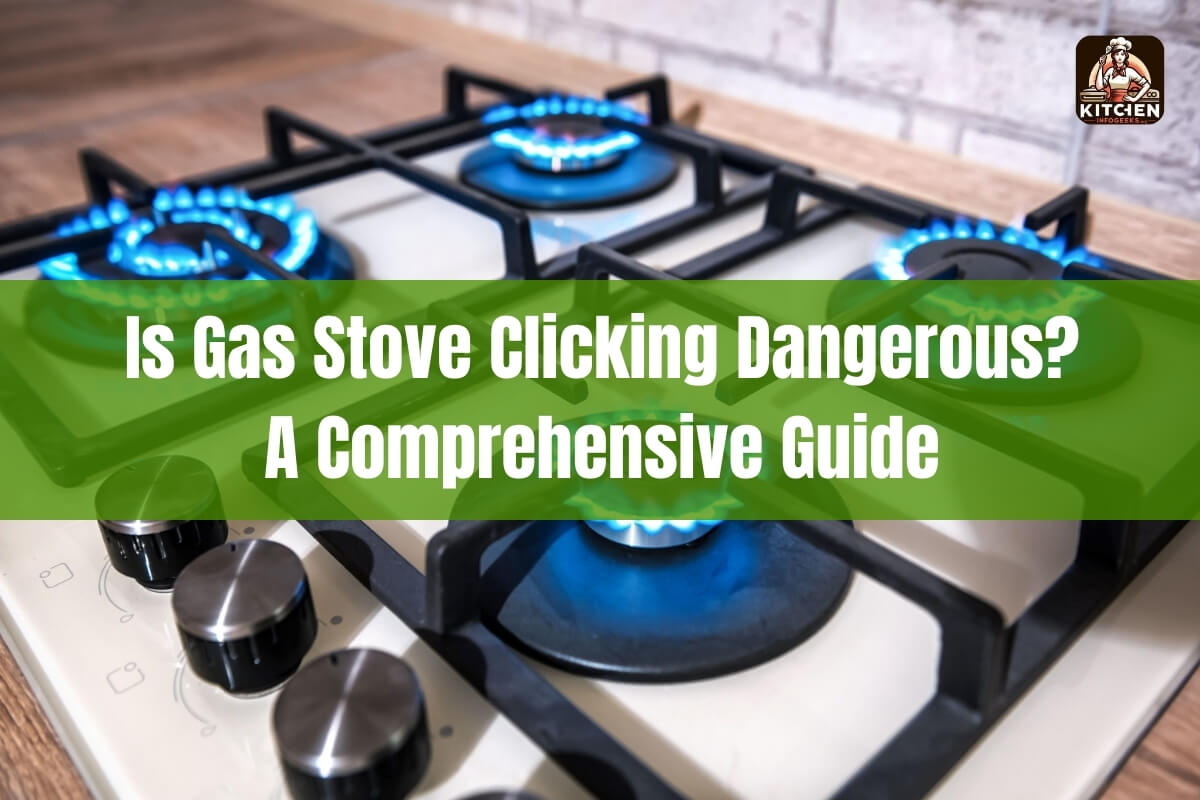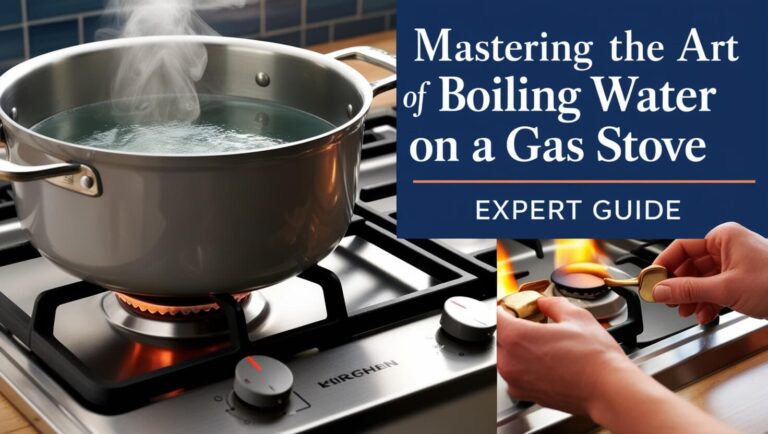
If you’ve ever heard a repetitive clicking sound coming from your gas stove, you might have wondered: is gas stove clicking dangerous? The short answer is no, a clicking gas stove is usually not a safety hazard. However, it’s an issue that should be addressed as soon as possible to prevent further damage or inconvenience.
In this detailed guide, we’ll explore the various reasons why a gas stove clicks, when the clicking could potentially be dangerous, and how to troubleshoot and fix the problem. We’ll cover everything you need to know about gas stove clicking, from understanding the causes to step-by-step solutions.
What Causes a Gas Stove to Click?
The clicking sound you hear from your gas stove is caused by the spark electrode. This component creates small electrical sparks that ignite the gas and produce the flame on your burners. A normal igniter will click a few times before sparking and lighting the stove.
However, sometimes the igniter may continue clicking even after the stove is lit or turned off. There are several potential reasons for this continuous clicking:
Dirt or Moisture in the Burners
One of the most common causes of excessive clicking is food debris or moisture buildup in the burner area. Over time, spills and boil-overs can lead to a buildup of grime or water droplets around the spark electrode, causing it to click continuously.
Misaligned or Blocked Burner Caps
The burner caps on your gas stove need to be properly aligned and free of obstructions. If a burner cap is crooked or has food particles blocking the igniter, it can prevent the electrode from sparking correctly, resulting in constant clicking.
Faulty Spark Ignition Switch
Behind each burner knob, there’s a switch that controls the flow of electricity to the spark electrode. If one of these switches malfunctions, it can cause the electrode to click continuously or fail to spark at all.
Defective Spark Module
The spark module is responsible for powering the spark electrode for each burner. If this component is damaged, it may cause the electrodes to spark or click erratically.
Worn-Out Spark Electrode
The spark electrode itself can wear out over time, especially if the stove has been clicking excessively for a prolonged period. A worn-out electrode may struggle to produce a consistent spark, leading to constant clicking.
When Is Gas Stove Clicking Potentially Dangerous?
In most cases, a clicking gas stove is more of an annoyance than a safety hazard. However, there is one exception where the clicking could indicate a dangerous situation: if you smell gas.
If you notice a gas odor while your stove is clicking, it’s possible that there’s a gas leak. In this scenario, it’s crucial to take immediate action:
- Turn off the gas supply to your stove.
- Unplug the stove from the electrical outlet.
- Open windows and doors to ventilate the area.
- Evacuate your home and move to a safe location.
- Contact your gas utility provider or a qualified professional to inspect and repair the leak.
Ignoring a potential gas leak can lead to serious consequences, including fire or explosion hazards, and potential exposure to carbon monoxide poisoning.
Step-by-Step Troubleshooting Guide
If your gas stove is clicking but you don’t smell any gas, you can try troubleshooting the issue yourself. Here’s a step-by-step guide to help you identify and fix the problem:
- Check for Dirt or Moisture:
- Unplug the stove from the electrical outlet.
- Remove the burner grates and caps.
- Inspect the burner area for any food debris or moisture buildup.
- Use a dry toothbrush or compressed air to clean out any visible grime or water droplets.
- Allow the burners to air dry completely before reassembling.
- Realign the Burner Caps:
- Ensure the burner caps are properly centered and seated on the burner bases.
- Check that nothing is obstructing the spark electrode or gas flow.
- Test the Spark Ignition Switches:
- Remove the control knobs from the front of the stove.
- Use a multimeter to test the continuity of each ignition switch.
- If a switch is faulty, replace it with a new one.
- Inspect the Spark Module:
- Locate the spark module, usually at the back or underneath the stove.
- Check for any visible damage or loose connections.
- If the module appears defective, replace it with a new one.
- Replace the Spark Electrode (if necessary):
- If the previous steps don’t resolve the issue, the spark electrode itself may need replacement.
- This process typically requires more disassembly and should be done by a qualified professional.
If you’ve followed these steps and the clicking persists, it’s best to contact a professional appliance repair service. They have the expertise and tools to diagnose and fix more complex issues with gas stoves.
Gas Stove Clicking FAQs
How do I stop the clicking temporarily? If the clicking is becoming a nuisance, you can stop it temporarily by unplugging the stove from the electrical outlet. This will cut off power to the spark electrode, preventing it from clicking until you can address the underlying issue.
Is it normal for a new gas stove to click? When you first start using a new gas stove, you may hear some clicking as air is cleared from the gas lines. This is generally normal and should subside after a few minutes of operation.
What if the stove keeps clicking after the burners are off? If your gas stove continues clicking even after you’ve turned off the burners, it could indicate a stuck or faulty ignition switch. In this case, you’ll need to replace the malfunctioning switch to stop the clicking.
Conclusion
While a clicking gas stove may be annoying, it’s usually not a dangerous situation – unless you smell gas, which could indicate a leak. By understanding the common causes of clicking and following the troubleshooting steps outlined in this guide, you can often resolve the issue yourself.
Regular maintenance and prompt attention to any stove problems can help prevent excessive clicking and potential damage to your appliance. If you’re ever unsure or uncomfortable with DIY repairs, don’t hesitate to contact a professional appliance service for assistance.
Keep your gas stove in top working condition, and you’ll enjoy a safe, efficient cooking experience for years to come.






